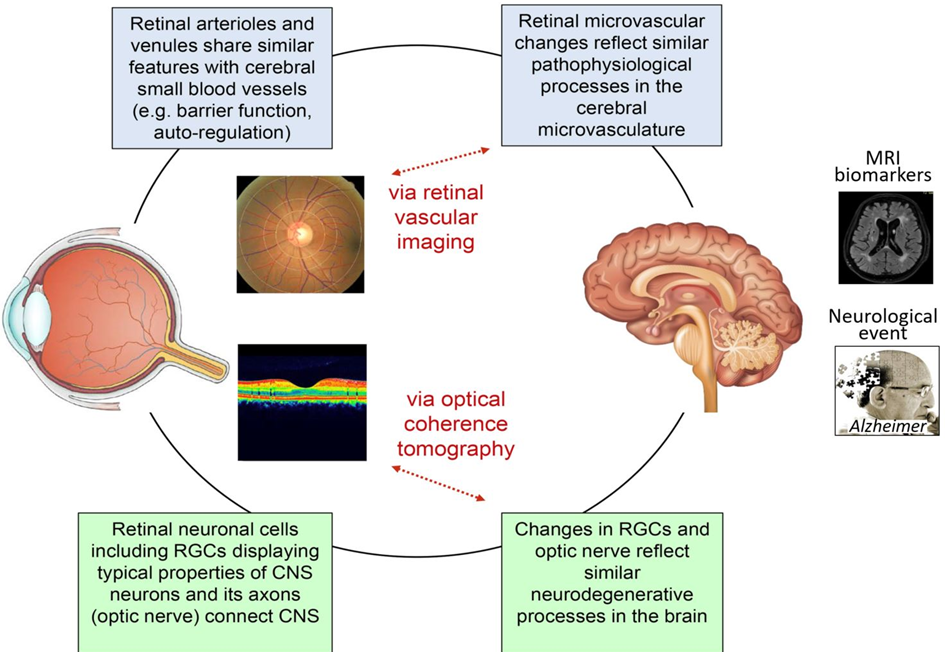About the research topic
Nowadays, people suspected of having dementia need to undergo expensive and invasive diagnostic procedures. Eye2Brain aims to develop an AI-driven system that can predict the time to dementia onset by analysing retinal images. The departments of Ophthalmology, Radiology, and Epidemiology of the Erasmus Medical Center have formed a consortium with Thirona BV, a Dutch company focused on AI-solutions for radiology and ophthalmology.
Many consider dementia the worst thing that can happen in life. One out of three persons suffer from this disease by the time they become eighty years-old. Dementia has a huge impact not only on patients and their loved ones but also on the healthcare system. There is no cure for dementia, but it is known that lifestyle interventions such as smoking cessation, low alcohol intake, a healthy diet, and increased physical activity can approximately half the risk for dementia. Early detection is therefore crucial.
In this project, the aim is to develop a quick and non-invasive system that uses artificial intelligence to detect predictive features before the first dementia symptoms appear. These features include vascular abnormalities, thickness of retinal areas and loss of retinal cells. This groups and others have already found that some retinal features associate with dementia, but how predictive they are is unknown. Using artificial intelligence, we expect to develop a system that is powerful enough to predict time to symptomatic dementia. Data will be used from the Rotterdam Study, a prospective cohort study in which the eye and brain status was measured regularly in >8000 participants for more than 30 years.
At the end of this project, the AI solutions will have laid the foundation for a system that can be used to screen for early dementia to provide a window of time for lifestyle changes which lower the risk of disease.

Funding: TKI Health-Holland PPP match call




